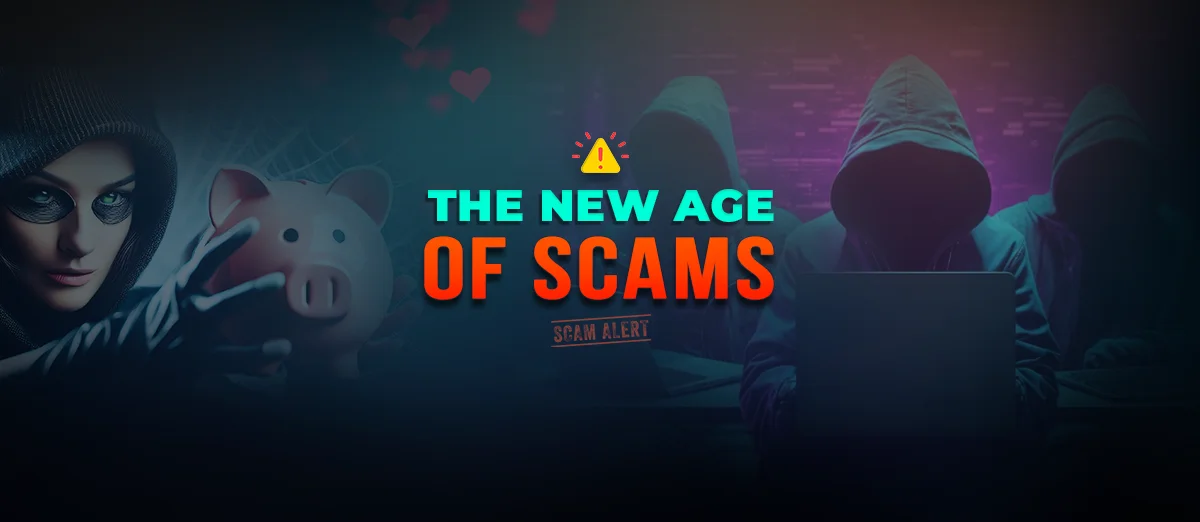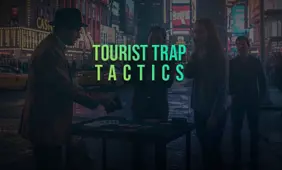The Pig Butchering Con - Spotting the Signs of Digital Age Scams

In our digital era, scams are evolving at a pace that keeps even the most tech-savvy individuals on their toes. Age-old tricks have been given a digital facelift, wielding a vast arsenal of tools offered by social media and modern communication. Today, even the most obvious cons are cloaked in sophisticated schemes that catch people unaware.
Picture this: a friend shares their experience of losing a significant sum to an online swindle, perhaps duped by a captivating stranger or a supposed friend. It seems clear-cut, right? But delve deeper, and you’ll find these scams are more convincing than you'd think, crafted with tactics that have been honed and shared across an emerging industry of deception.
While street scams are losing some traction, romance schemes and the now infamous "pig butchering" scheme have captured headlines lately, with alarming numbers. According to the FBI’s Internet Crime Complaint Center (IC3), victims of romance scams reported losses exceeding $1 billion in 2021 alone, marking a nearly 30% increase from the previous year. The “pig butchering” scams, which combine elements of romance and investment fraud, have seen an alarming rise, with reports of victims losing millions collectively.
Understanding the Mechanics of the Scam
Let’s dissect the elements that make us vulnerable to such schemes, arming ourselves with the knowledge to spot them and avoid being ensnared.
The Basis of a Con: My expert opinion is that successful cons hinge on need rather than greed and it’s an all-too common misconception that victims are greedy; more often, they’re seeking success, rectifying missed opportunities, or simply looking for a human connection. Scammers skillfully exploit these desires, transforming what seems absurd in hindsight into a believable opportunity through the manipulation of ego, human nature and predictable psychology.
We all desire wins in life, and sometimes we linger over the "what ifs" of missed chances. This mindset makes us ripe for the taking when a new chance appears, even from someone who, until recently, was a total stranger. Scammers excel at building trust through empathy and understanding built on multiple flavors of vulnerability. Though their empathy is fake, it’s compelling enough to drive people toward actions that would be otherwise unthinkable.
These scams often begin with a simple message apparently meant for someone else. This misdirected text is the bait, inviting the recipient to correct the sender and initiate a conversation and the scammer, adept at establishing rapport, gradually steers this chat to gain personal insights that can unfold over days, weeks, or even months, with the unspoken promise of more than just casual conversation.
Smart scammers know when to avoid hard sells; they create comfort before subtly introducing a “financial opportunity.” Profile photos showing someone matching the target’s preferences make the interaction seem both genuine and compelling and as conversations progress from playful banter to deep, meaningful exchanges, the victim becomes more pliable and open to influence.
Unlike straightforward romance scams, where victims are asked to send money for gifts or fake expenses, this strategy is sneakier. The cammer doesn't appear to benefit directly from the opportunity, disarming even the most cautious individuals. Each scam is carefully tailored, but what’s astonishing is the industrial scale of these operations.
In another of his excellent exposés, Jim Browning, a scam-busting investigator, recently revealed a colossal operation based in the Middle East where buildings full of staff comb the internet for victims, advancing them through scripted phases designed to extract substantial sums. They even employ actors for video calls, adding a layer of credibility. These operations are sophisticated, driven by criminal masterminds safely behind the scenes.
The global scale of these scams is staggering. A report by the Global Anti-Scam Organization (GASO) highlights that victims of "pig butchering" scams have lost upwards of $200 million, with individual losses ranging from thousands to over a million dollars. Of course, these figures are just the tip of a much larger iceberg, with many cases likely going unreported due to embarrassment or fear.
Protecting Yourself and Others
You might think, “This could never happen to me.” But never say never. We believe we can spot a wolf in sheep’s clothing, but when that same wolf dresses up as a kangaroo, those big teeth may go unnoticed until it’s too late.
Recognizing Red Flags: Stay alert for unsolicited messages or friend requests, especially those quickly steering towards personal topics or money matters. Be cautious of anyone who avoids video calls or meeting in person, claiming work obligations or other excuses. Smart scammers have actors who will play the part for dubious targets but in Browning’s inside exposé just one pretty girl was being Zoomed and FaceTimed to hundreds of potential marks so if video calls are one-offs or very hard to arrange, consider that as a likely tell that your new friend is a scammer.
Verifying Identities: Use reverse image searches to check profile pictures for authenticity. Scam profiles often recycle photos found elsewhere online. If an opportunity sounds too good to be true, it probably is. Consult trusted friends or family before making decisions based on someone else’s advice. Be aware that AI tools are evolving at fantastic speeds so by the time you read this, fake photos, videos and voices may be much easier to deploy.
Educating Yourself and Others: Knowledge is a powerful tool. I highly recommend watching Jim Browning’s video on pig butchering scams to understand these operations' full scale. The lengths scammers go to are staggering, often operating with impunity. It’s crucial to share this information with friends and family who might be vulnerable. Spread the word, discuss the dangers, and ensure everyone understands how easily a simple, innocent text can lead to a very costly mistake.
The Digital Era’s Dark Side
The digital age has revolutionized how we connect, communicate, and interact, making the world feel smaller and more accessible than ever before. However, with this newfound connectivity comes an alarming rise in deception and exploitation. Scammers have evolved, targeting our desires for connection, success, or security, and they exploit vulnerabilities with chilling efficiency. These schemes can take many forms, from phishing emails and fake social media profiles to elaborate investment frauds. Staying informed and vigilant is crucial in protecting ourselves and others from these insidious threats.
Education and awareness are our best defenses against these ever-evolving tactics. By discussing online safety, sharing resources like this article, and encouraging open conversations about potential risks, we empower our communities to recognize and resist scams. Together, we can navigate the challenges of the digital landscape with eyes wide open, fostering a safer and more informed online environment for everyone.





Review this Blog
Leave a Comment
User Comments
comments for The Pig Butchering Con - Spotting the Signs of Digital Age Scams